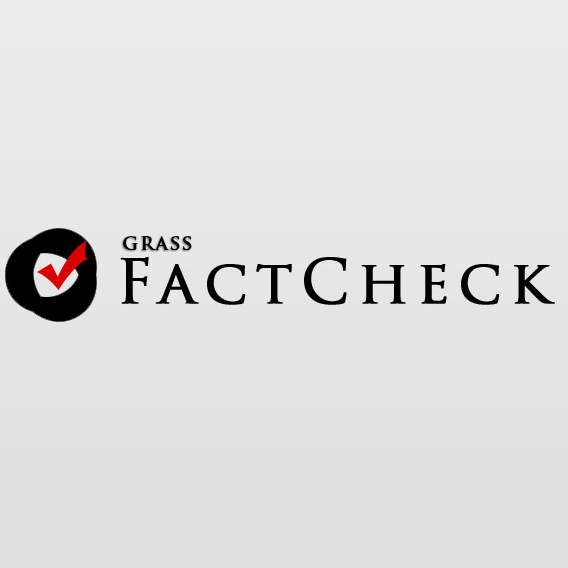It’s been 10 days since the fact-checking community launched a collaborative project to fight the spread of misinformation regarding the new coronavirus. As of Saturday, the group of 78 fact-checkers based in more than 30 countries has published 180 fact-checks, many of which carried extremely wild hoaxes and/or totally unbelievable information.
Some fact-checkers started to ask themselves: How far can fear of this new disease fuel the spread of misinformation? And can panic limit human reasoning in times like this?
Among the obvious falsehoods detected by the collaborative project coordinated by the International Fact-Checking Network, there is, for example, the “information” that China has built an entirely new hospital — in only 48 hours — just to treat its coronavirus infected citizens.
This hoax went viral in at least four countries in the last few days. On Jan. 30, it was being widely shared in Turkey on Twitter through a photo. In Kazakhstan, the same story was on Facebook and text messages. So Teyit and FactCheck.kz published articles explaining that it referred to a construction that had actually started two years ago.
The following day, however, the same falsehood popped up in Sri Lanka and in Spain. Fact-checkers from Factcrescendo and Newtral just couldn’t believe their eyes. Why would anyone believe that? The effort to build a hospital is gigantic — even in powerful China.
Absurdly false predictions about the new virus have also surprised fact-checkers lately. Posts saying “The Simpsons” and the movie “Venom” predicted the coronavirus epidemic became popular even though both are untrue.
In one episode of the famous cartoon series about the yellow family, Osaka flu arrives in the United States. But fact-checkers remember that Osaka is a city in Japan, not China. In “Venom,” the story is not based on an epidemic at all. The character doesn’t get infected by eating wild animals in a marketplace — she is already poisoned.
FactCheck.org, one of the most important fact-checking units based in the United States, has also highlighted that Bill and Melinda Gates Foundation has not predicted that “up to 65 million people would die from coronavirus in a simulation ran three months ago.” The website that published this information is actually “distorting the facts about an emergency preparedness exercise for a fictional pandemic,” wrote the fact-checking team.
The third craziness unleashed by panic and fear is related to bats. Even though scientists keep saying there is no evidence of a relationship between those creatures and the coronavirus, the number of hoaxes connecting them is impressive.
For this reason, Observers, the fact-checking team at France 24, decided to verify seven of those videos and concluded that five of them were false. The other two were considered unverifiable.
So please spread the word: those videos that are trending on Youtube, TikTok, Weibo and Instagram “showing people eating bat soups and getting sick from coronavirus” are very likely false. The one showing a woman, for instance, was recorded in Palau, 2016. The one showing a Filipino doing the same comes from the same Pacific country and dates from July.
And, by the way, don’t share videos showing wild animals kept in unhygienic conditions and being sold as exotic delicacies as if they were recorded in Wuhan. Boom, in India, proved at least one of them came from Indonesia and has nothing to do with the 2019 coronavirus.
Last but not least,fact-checkers have definitely debunked a few times a manipulated image attributed to the World Health Organization which says the WHO advised people to avoid unprotected sex with animals. The photo being shared on Facebook, Twitter and WhatsApp groups consists of an edited version of a post made by the organization on Twitter on Jan. 27. Please don’t share it anymore.
Read the reports published by the #CoronaVirusFacts collaboration project
Report #1 (published Jan. 28): Coronavirus: Fact-checkers from 30 countries are fighting 3 waves of misinformation
Report #2 (published Jan. 30): Photos and videos allegedly showing the coronavirus are now challenging fact-checkers
*Cristina Tardáguila is the associate director of the International Fact-Checking Network and the founder of Agência Lupa. She can be reached at [email protected].
*Coronavirus collaboration: The collaborative project, coordinated by the International Fact-Checking Network, was launched Jan. 24 and will be active for as long as the lethal disease spreads worldwide. Fact-checkers are using a shared Google Sheet and a Slack channel to share content and communicate in different time zones. Follow #CoronaVirusFacts and #DatosCoronaVirus on social media for the latest updates.
Originally published on www.poynter.org







